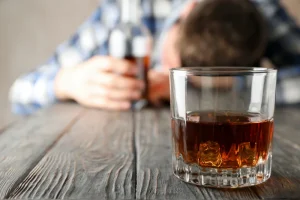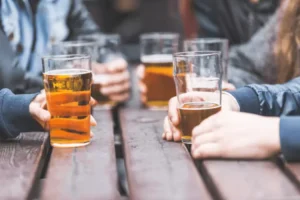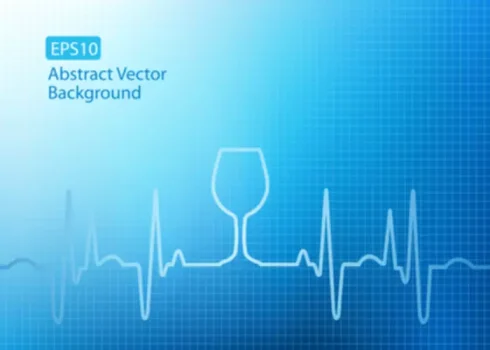Sober-Curious: Benefits of an Alcohol-Free Lifestyle

It’s very taxing, you know, like, I would not choose to do anything else. Because, you know, kind of like what we said earlier, like waking up and getting to be of service to the recovery community, is my passion. And I think, finding purpose and getting to do something that I really, truly love and believe in every day, as a profession. But at the same time, like, you know, it does take a toll on a person, you know, you do feel a level of responsibility, you feel a level of I need to be doing this, I’m on my phone all the time.

Alcohol Detox Program: Supporting High Achievers
And I’m finding similar findings as well in terms that it’s often people who still drink, actually, who are using these products. And we’re certainly seeing the particular growth in the beer segment. And I can attest that I think an alcohol free or zero proof beer tends to taste fairly close to the real thing. So that’s why many, there are small businesses such as Ritual whiskey, Ritual, I should say that comes out of Chicago, but there’s Heineken has as it, has a non-alcoholic beer. Anheuser-Busch has several non-alcoholic beers and Diageo, for example, is the majority investor in Seedlip, which really kickstarted a lot of these non-alcoholic distillates for cocktails.
Reduced Heart Disease Risk

The ability to plan ahead, learn and hold information (like a phone number or shopping list), withhold responses as needed, and work with spatial information (such as using a map) can be affected. Brain structures can shift as well, particularly in the frontal lobes, which are key for planning, making decisions, and regulating emotions. But many people in recovery show improvements in memory and concentration, even within the https://ecosoberhouse.com/ first month of sobriety. The chance of developing any health problem is related to the genetic code we are born with. Just like some people have a greater risk of developing cardiovascular disease or cancer, others have a greater risk of developing an alcohol use disorder. You know, I mean, I remember when I told my psychiatrist that I was leaving a, because I literally I think I saw her when I was like three days sober.
Learn More About Soberlink
The term “hangxiety,” the feeling of extreme anxiety due to a night of over-drinking, has even risen in popularity as more people begin to connect their rise in anxious feelings to alcohol. It can be difficult to know whether or not to abstain from alcohol to support a loved one in recovery. Treatment settings teach patients to cope with the realities of an alcohol-infused world. Just like any alcohol free lifestyle other illness, it is ultimately the responsibility of the individual to learn how to manage it. However, loved ones often want to help, such as by showing solidarity or hosting a gathering that feels safe for their loved one. Whenever possible, it’s best to have an open, respectful, and direct conversation with the individual in recovery, and ask how they feel about alcohol being present.
Tips for living with someone who has an alcohol addiction
I’m like, so really, like seven years ago, like, I always reference like the 1950s, like mad men, you know, everyone’s smoking inside, everybody’s drinking right in the morning. Like, there’s one scene, Aaron, where he’s like, he puts like milk and whiskey together in the morning to like, nourish this hangover. Welcome to the Hello Someday Podcast, the podcast for busy women who are ready to drink less and live more. I’m Casey McGuire Davidson, ex-red wine girl turned life coach helping women create lives they love without alcohol.
Improved heart health

And you got to you know, if you’re good at something, you’re good at something if you’re not, you’re not. And the other is growth mindset, which is the mindset that, you know, everything is learnable everything is teachable, you know, I’m not saying that we can all go, and you know, swim like Michael Phelps. But if you’re not good at swimming, you can become better. And so, what I found really interesting was about this book that I’m almost done with, I think a lot of a lot of what I’ve been applying to the DRI club has been a lot of trying to teach people the growth mindset. Because I think so many of us, I think are we’re more naturally inclined to think about fixed mindset, because that’s kind of what our, our culture, our culture perpetuates.

- Most struggle against it and craft a variety of arguments to demonstrate that they don’t have a problem.
- Once you get through that part of the process, you’ll start to feel better physically and mentally.
- You can already be sober, you can already be a couple days, you know, alcohol free.
- The later stages of addiction can yield physical changes, but behavioral signs can help detect it early on.